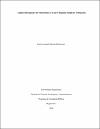Mostrar el registro resumido del documento
Análisis del Impuesto del Monotributo y el nuevo Régimen Simple de Tributación
| dc.contributor.advisor | Rojas, Manuel Antonio |
| dc.creator | Cifuentes-Betancourt, Jenny Lorena |
| dc.date.accessioned | 2020-01-22T19:30:43Z |
| dc.date.available | 2020-01-22T19:30:43Z |
| dc.date.created | 2020-01-22 |
| dc.identifier.uri | http://repositorio.uniagustiniana.edu.co//handle/123456789/1128 |
| dc.description | El objetivo principal de este trabajo es identificar las causas del porque no funciono el impuesto Monotributo, creado bajo la anterior ley 1819 del 2016 en su artículo 165 libro octavo identificando los beneficios, a qué sector llegaría este impuesto y los requisitos para declarar este impuesto, pero para entender un poco más de este impuesto se hablara del impacto que tiene este impuesto en algunos países de Latinoamérica como Brasil Argentina y Uruguay, durante el desarrollo del trabajo también se identificaran a través de algunas tablas la clasificación de los contribuyentes de Monotributo, como las tarifas a pagar, por último se hablara de las medidas que tuvo el gobierno frente al fracaso del Monotributo y la creación bajo la ley 1949 del 2018 del Nuevo Régimen Simple de Tributación quien remplaza el Monotributo, este nuevo régimen va dirigido no solo a los comerciantes informales, también a los empresarios que cumplan con algunas condiciones, por último se realizara un ejemplo de una empresa dedicada a la fabricación y comercialización de prendas de vestir, donde con los mismos datos como ingresos, costos y gastos, identificaremos porque método ( Régimen Ordinario y Régimen Simple) tributaria con mejores beneficios. |
| dc.description.abstract | The main objective of this work is to identify the causes of why the Monotax tax did not work, created under the previous law 1819 of 2016 in its article 165 book eighth identifying the benefits, to which sector this tax would reach and the requirements to declare this tax, but to understand a little more about this tax, we will talk about the impact that this tax has on some Latin American countries such as Brazil, Argentina and Uruguay, during the development of the work, the classification of the taxpayers of Monotributo will also be identified through some tables, such as the fees to be paid, finally we will talk about the measures that the government had against the failure of the Monotax and the creation under the 1949 law of 2018 of the New Simple Taxation Regime who replaces the Monotax, this new regime is aimed not only at informal traders, also to entrepreneurs who meet certain conditions, finally it was carried out For an example of a company dedicated to the manufacture and marketing of clothing, where with the same data as income, costs and expenses, we will identify the method (Ordinary Regime and Simple Regime) with the best benefits. |
| dc.format.mimetype | application/pdf |
| dc.language.iso | spa |
| dc.rights | Atribución-NoComercial-CompartirIgual 4.0 Internacional |
| dc.rights.uri | http://creativecommons.org/licenses/by-nc-sa/4.0/ |
| dc.source | instname:Universitaria Agustiniana |
| dc.source | reponame:Repositorio Institucional UniARI |
| dc.subject | Impuesto |
| dc.subject | Conocimiento |
| dc.subject | Reforma |
| dc.subject | Leyes |
| dc.title | Análisis del Impuesto del Monotributo y el nuevo Régimen Simple de Tributación |
| dc.type | info:eu-repo/semantics/bachelorThesis |
| dc.rights.accesRights | info:eu-repo/semantics/openAccess |
| dc.rights.acceso | Abierto (Texto Completo) |
| dc.subject.lemb | Impuestos |
| dc.subject.lemb | Pequeñas y medianas empresas |
| dc.subject.lemb | Sistema tributario |
| dc.subject.lemb | Contribuyentes |
| dc.subject.keyword | Tax |
| dc.subject.keyword | Knowledge |
| dc.subject.keyword | Reform |
| dc.subject.keyword | Laws |
| dc.type.hasVersion | info:eu-repo/semantics/acceptedVersion |
Archivos en el documento
Este documento aparece en la(s) siguiente(s) colección(ones)
 Esta obra está bajo licencia internacional Creative Commons Reconocimiento-NoComercial 4.0.
Esta obra está bajo licencia internacional Creative Commons Reconocimiento-NoComercial 4.0.

